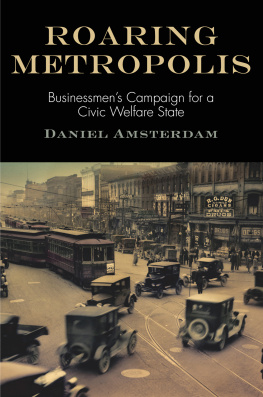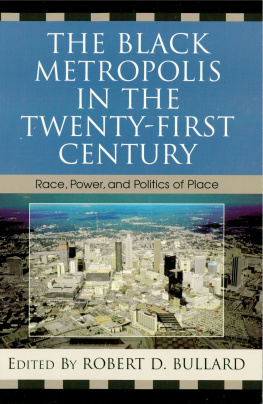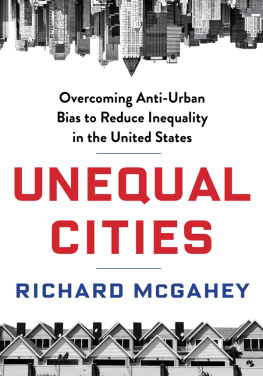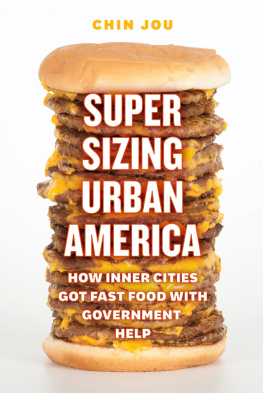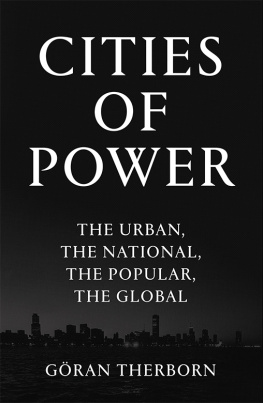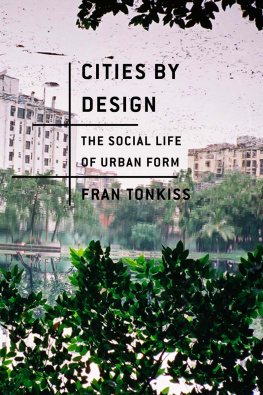Contents
Page List
Guide

ROARING METROPOLIS
AMERICAN BUSINESS, POLITICS, AND SOCIETY
Series editors:
Andrew Wender Cohen, Pamela Walker Laird,
Mark H. Rose, and Elizabeth Tandy Shermer
Books in the series American Business, Politics, and Society explore the relationships over time between governmental institutions and the creation and performance of markets, firms, and industries large and small. The central theme of this series is that politics, law, and public policyunderstood broadly to embrace not only lawmaking but also the structuring presence of governmental institutionshave been fundamental to the evolution of American business from the colonial era to the present. The series aims to explore, in particular, developments that have enduring consequences.
A complete list of books in the series is available from the publisher.
ROARING
METROPOLIS

Businessmens Campaign for a Civic Welfare State
Daniel Amsterdam

UNIVERSITY OF PENNSYLVANIA PRESS
PHILADELPHIA
Copyright 2016 University of Pennsylvania Press
All rights reserved. Except for brief quotations used for purposes of review or scholarly citation, none of this book may be reproduced in any form by any means without written permission from the publisher.
Published by
University of Pennsylvania Press
Philadelphia, Pennsylvania 19104-4112
www.upenn.edu/pennpress
Printed in the United States of America on acid-free paper
1 3 5 7 9 10 8 6 4 2
Library of Congress Cataloging-in-Publication Data
Names: Amsterdam, Daniel, author.
Title: Roaring metropolis : businessmens campaign for a civic welfare state / Daniel Amsterdam.
Other titles: American business, politics, and society.
Description: Philadelphia : University of Pennsylvania Press, [2016] |
Series: American business, politics, and society | Includes bibliographical references and index.
Identifiers: LCCN 2015038836 | ISBN 978-0-8122-4810-4 (alk. paper)
Subjects: LCSH: United StatesSocial policy20th centuryCase studies. | BusinessmenPolitical activityUnited StatesHistory20th centuryCase studies. | Social changeUnited StatesHistory20th centuryCase studies. | Detroit (Mich.)Politics and government20th century. | Detroit (Mich.)Social conditions20th century. | Philadelphia (Pa.)Politics and government20th century. | Philadelphia (Pa.)Social conditions20th century. | Atlanta (Ga.)Politics and government20th century. | Atlanta (Ga.)Social conditions20th century.
Classification: LCC HN57 A63 2016 | DDC 307.76dc23
LC record available at http://lccn.loc.gov/2015038836
For Farrah and Elliot
and only because of
Kate
CONTENTS

Introduction

Americans concerned about poverty and inequality frequently point to the early twentieth century as a time when new forms of social legislation managed to curb corporate power. But the relationship between business interests and the development of public social policy in that era was far too complex to be captured so neatly. Businessmen of various stripes actually supported the implementation and expansion of a wide range of public social programs throughout the period. In fact, between the end of World War I and the onset of the Great Depression, commercial and industrial elites helped drive social spending in American cities to unprecedented heights.
With a few important exceptions, business interests in the early twentieth century tended to resist the rise of what we now call the social welfare statean economic safety net woven from programs like unemployment compensation and public pensions for the elderly whose initial consolidation is perhaps most often associated with the 1930s and the New Deal. Yet to varying degrees in the early twentieth century and with particular fervor in the 1920s, business leaders in urban America championed a very different brand of social policy. Rather than state or national programs, they tended to favor local ones. Opposed to most forms of social insurance, they embraced public schooling, the promotion of public health, and the construction of decentralized cities featuring parks, playgrounds, libraries, museums, and single-family homes. Often through a windfall of public spending, these businessmen hoped to remake American cities and in many cases the citizens who inhabited them. Disdainful of most attempts to reduce poverty and economic insecurity through government action, they turned to government-sponsored social policy for altogether different reasons: to foster social and political stability as well as economic growth. Largely resistant to a social welfare state, they sought to build what might be called a civic welfare state, a network of programs that in the minds of elite businessmen promised to further both the goals of urban reform and urban boosterism, to prepare citizens for work and democracy while helping to lure new firms to their hometowns.
Commercial and industrial elites were far from the only political activists in the early twentieth century who supported such programs. But by the end of World War I, urban business leaders had become exceptionally adept at promoting the public social policies that they favored. Prodded in part by these businessmens political activism, urban budgets skyrocketed in the 1920s. In some cities spending grew by 50 percent adjusted for inflation; elsewhere budgets doubled or even tripled. Across urban America expenditures rose at rates that far outpaced population growth and in many cases spending before the war. The 1920s were hardly a moment of government retrenchment or a time when government growth was limited to Prohibition, early federal forays into economic planning, and the development of a smattering of other programs. On the contrary, business interests helped make the 1920s a moment of aggressive government expansion in urban America.
This book tells the story of how urban business leaders attempted to implement their vision for American social policy in three citiesDetroit, Philadelphia, and Atlantathat experienced the tumult of the early twentieth century in importantly different ways. It pays close attention to a wide range of political actors, including local unions, middle-class womens organizations, immigrant groups, African American activists, and the Ku Klux Klan. But its main protagonists are successful men of industry and commerce, including a subset of wealthy lawyers and other high-end professionals, who accumulated enough political and economic clout to capture local political office or to steer major local business organizations such as their citys chamber of commerce at a time when white men dominated local government and urban Americas largest commercial bodies. It shows how these white business leaders moved from a position of limited political influence when it came to shaping urban social policy in the years preceding World War I to a perch of relative dominance thereafter. It describes how their social policy agenda expanded in the wake of the war and how the configuration of urban political institutions and the unequal distribution of power and economic resources tended to push other political activists to the sidelines in the decade following the armistice.

